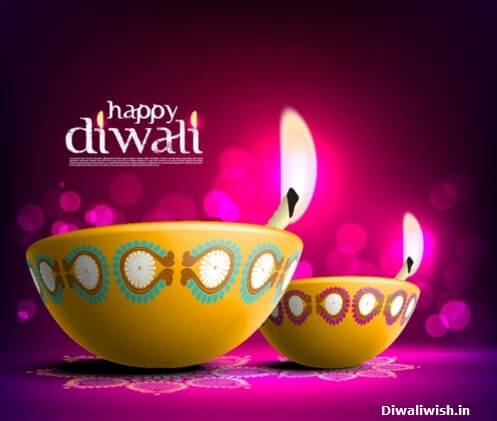History of Diwali Festival, Information on Deepavali Festival, Deepavali Importance, About Diwali Festival
Diwali One of the most seasoned and the largest praised celebrations, Deepavali involves an extraordinary spot in the Hindu calendar. The word Diwali signifying "Festivals of lights" springs from the first Sanskrit word "Deepavali" which implies a column or arrangement of lights. In the event that an aeronautical photo of a territory is tapped on the night of this celebration, the perspective would be that of a brilliantly lit up area.
 |
| Happy Deepavali |
The idea of Diwali started one dull, dim night several years back. The night that finished a 14-year long and troublesome outcast for Rama, King of Ayodhya. That night, his kin lit up their homes with earthen lights to enlighten his direction home and set off firecrackers to welcome home their darling ruler. Hindus proceed with the custom by illuminating their homes on Diwali while kids express their pleasure through a large group of uproarious saltines and brilliant sparklers. Down the ages, Diwali has come to be praised for an entire host of reasons - for business groups, it proclaims the New Year - a new beginning when old records are settled and new records opened. The goddess of riches, Lakshmi and the lord of promising beginnings, Ganesh are diligently charmed to guarantee flourishing and monetary achievement in the coming year. Diwali marks the New Year for the Jain group and it likewise remembers the passing commemoration of their 23rd Tirthankara Mahavira and his achievement of moksha. Cheerfully, Diwali rises above religion and is generally celebrated by Indians in a soul befitting a celebration of light and delight.
Diwali Traditions
Rangoli Creation
Rangoli creation is a convention in India including a great deal of fun, innovativeness, and diligent work. Rangolis are depictions made on the floor with either vivid sawdust, blooms, rice-grains or chalk. The plans are predominantly typical of the celebration, for example, impressions of goddess Lakshmi, flower designs, shankh and geometric examples made by joining specks and lines.
- Read: Diwali Rangoli Designs
Lighting Lamps "Diyas"
Diwali, the celebration of lights is about illuminating each alcove and corner of the house with diyas and candles. The criticalness of lighting lights on Diwali is to oust dimness and wickedness while spreading the light of joy and happiness. Filling the house with light and opening the entryways and windows likewise means, respecting the goddess Lakshmi to the house particularly amid the puja hours. Individuals use beautified diyas and candles for the celebration, albeit generally 'earthen lights' lit with oil and cotton wicks are additionally broadly utilized. For open air beautifications, bright strings of electric lights and lines of diyas embellish their homes.
 |
| Lakshmi Pujan |
Lakshmi Pujan
There is a tradition of Lakshmi pujan in Diwali. Lakshmi was the little girl of the sage Bhrigu and took asylum in the sea of milk when the divine beings were sent into an outcast. Lakshmi was reawakened amid the Churning of the Ocean. When the divine beings saw Lakshmi, they all began to look all starry eyed at her magnificence. Shiva asserted Lakshmi as his wife, however since he had officially taken the Moon, her hand was given to Vishnu, whom Lakshmi herself favored.
Lakshmi is the goddess of light, magnificence, favorable luck, and riches. While Laxmi is, for the most part, worshiped to make progress, she doesn't live long with any individual who is apathetic or wish her just as riches.
- Read: Lakshmi Pujan Vidhi
- Read: Lakshmi Pujan Muhurat 2016
Firecrackers - Burning Crackers
Firecrackers symbolize party as opposed to as custom or convention on Diwali. The utilization of fireworks on Diwali in a statement of festivity and another method for spreading light throughout the night murkiness. Albeit blazing of saltines has been a well-known movement of the celebration amongst all age bunches, yet the ecological concerns in regards to the commotion and air contaminations have lead individuals to support Diwali festivities without wafers. Indeed, whether it is an ecological safe Diwali or blazing Diwali with wafers - the soul and satisfaction continue as before.
Diwali Dates in 2016 - October 30th [Tweet it]

Post a Comment